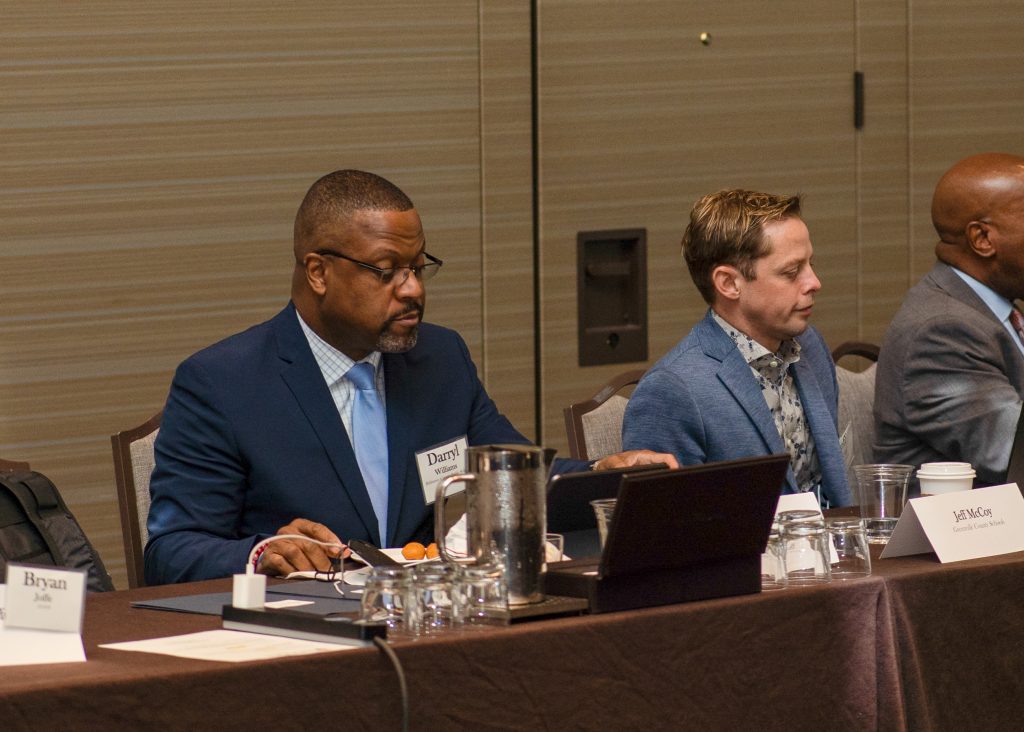Superintendents and their teams from Learning 2025’s demonstration school systems across the country gathered for a status check Wednesday prior to the start of AASA’s 2022 National Conference on Education.
With introductions from Ray McNulty, president of the Successful Practices Network, and Steve Webb, former superintendent in Vancouver, Wash., who serves as a senior consultant for Learning 2025, groups of superintendents discussed the difficulties their districts are facing moving forward with desired changes.
Some referenced the significant loss of school staff and others leaving the profession, student behavioral and emotional needs while dealing with trauma and contentious decisions on mask mandates and other pandemic-related mitigation protocols.
The morning’s keynote speaker, Luvelle Brown, superintendent in Ithaca, N.Y., discussed implementation of the tenets of Learning 2025’s mission in his district. The commission’s goal of providing student-centered, equity-focused, future-driven environments for students, he said, “[is] a vision statement that is bold and audacious. Why? Because it’s never happened.”
When Brown thinks of the term “student-centered,” he said, he thinks of student voice and agency through identity, mastery, belonging, efficacy, representation, policy and curriculum design.
“You need to give opportunities for them to unpack who they are,” added Brown, who is a recipient of the 2022 Dr. Effie H. Jones Humanitarian Award. “To master the academic content, we need to be responsive in our pedagogies.”
Giving students power and control to shape their own learning helps them feel as though schools are truly meeting their needs, he said. Brown also suggested that superintendents gather what he calls “street data” — learning from talking to young people, focus groups and even video testimonials rather than relying solely on test scores and graduation rates.
Equity and diversity are key goals in the Learning 2025 initiative. Part of what defines equity, Brown said, is “reducing the predictability of who succeeds and who fails.” Increasing access to resources for rural students and choice in student experiences are just some ways to address these issues.
Finally, the focus on being future-driven means preparing students for changes in the world around them — technological, social, economic and more. But Brown also pointed out the outlook for future schools.
“We can’t feel bad for what’s happened in the past, but it’s our responsibility not to make the same kind of mistakes,” Brown said. “As humans, we naturally and instinctually sort and select. We naturally exclude. What policies will we put in place to curb our humanity?”
As for what lies ahead, Webb said, “Learning 2025 is really about a hopeful future for each and every child in America.”
(Jacqueline Hyman is managing editor for Conference Daily Online and senior editorial assistant for AASA’s School Administrator magazine.)


